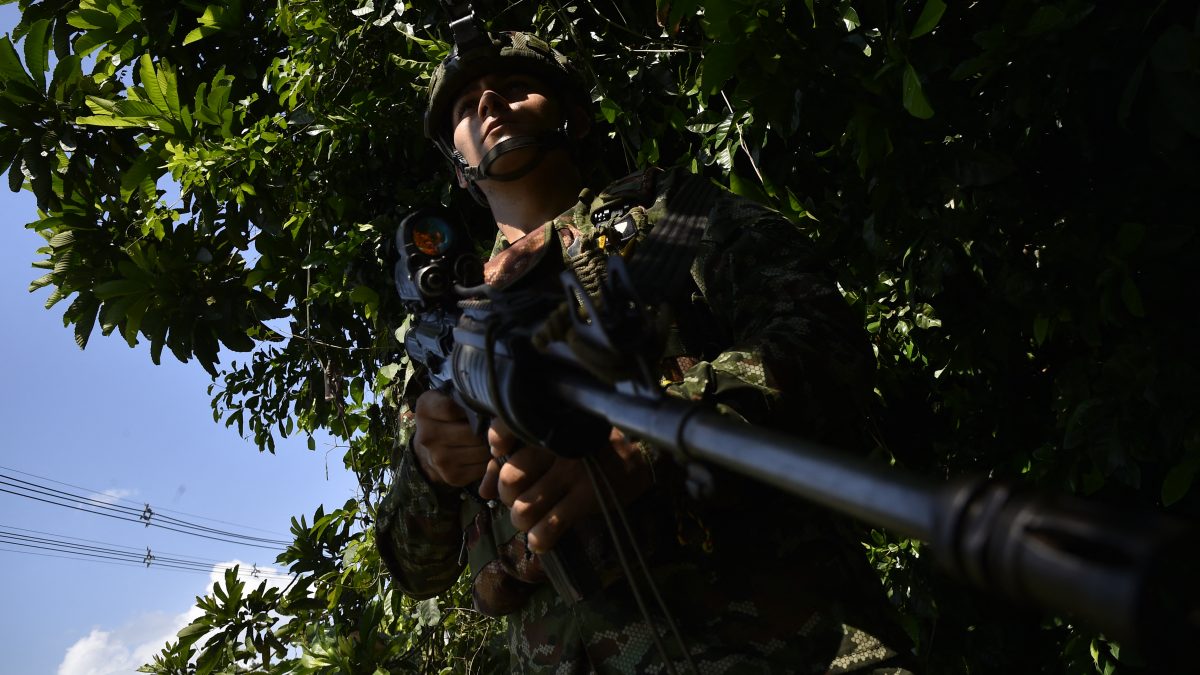Commanders of the National Liberation Army (ELN) have pledged to resist a government military offensive in northeastern Colombia, warning that President Gustavo Petro’s “total peace” initiative is unravelling into renewed conflict.
The ELN, a leftist guerrilla group active for six decades, has been engaged in intense fighting with a rival armed group in the Catatumbo border region.
Clashes since January have displaced nearly 56,000 people and left at least 76 dead, according to government figures– some of the worst violence Colombia has seen since the 2016 peace accord with the Revolutionary Armed Forces of Colombia (FARC).
In response, Petro’s government has declared a state of emergency and deployed 10,000 troops, vowing to reassert control over the region.
“Petro has declared war. We are not afraid of that,” said Ricardo, a leader of the ELN’s northeastern war front.
“If the military continues to arrive, most likely we will have a confrontation, because we are going to defend ourselves as an insurgent force,” he said.
“This total peace that Petro has been talking about, in the end, it is becoming total war.”
Tensions mount over cocaine routes
The violence is largely driven by territorial disputes and control over lucrative cocaine trafficking routes into Venezuela. The ELN’s stronghold is a key production area for coca, the raw material for cocaine, and a crucial gateway to the Caribbean coast, where drug shipments move toward global markets.
Authorities accuse the ELN of collaborating with Mexico’s Sinaloa Cartel, though the group denies direct involvement in drug trafficking. Instead, it claims to impose “taxes” on cocaine production within its territory to finance its operations.
The renewed fighting threatens Petro’s signature peace strategy, which aimed to negotiate with remaining armed groups. Critics argue that dissident factions have used the government’s leniency to regroup and expand their criminal enterprises, fueling further instability.
Impact Shorts
More ShortsReturn to conflict
The latest clashes spotlight the fragility of Colombia’s peace efforts. Armed groups continue to vie for control over illicit economies, contributing to a 420 per cent increase in coca cultivation since 2012, according to the United Nations.
Despite the ELN’s stated openness to dialogue, its commanders insist they will defend their positions, raising the prospect of further escalation. The government remains determined to regain control, setting the stage for an extended confrontation in one of Colombia’s most volatile regions.
With inputs from AFP
)